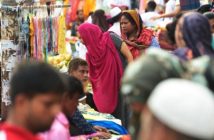Despite boasting a rapidly growing economy, India grapples with a significant reality: financial security remains elusive for a large portion of its population. While factors like income inequality and limited social safety nets play a role, several inherent cultural and financial practices contribute to this persistent struggle.
The Burden of Income Inequality:
India’s economic landscape is marked by stark disparities in income distribution. According to the Credit Suisse Global Wealth Report 2022, the top 1% of the population holds over 40% of the country’s wealth, leaving the vast majority with limited financial resources. This skewed distribution creates significant barriers to achieving financial security, particularly for those in lower-income brackets.
Limited Access to Formal Financial Services:
A significant segment of the Indian population, particularly in rural areas, lacks access to formal financial services. This includes limited access to bank accounts, credit facilities, and insurance products. This lack of access hinders their ability to build a secure financial future, leaving them vulnerable to financial shocks and emergencies.
Cultural Factors and Financial Priorities:
Traditional cultural values and social norms in India often prioritize immediate needs over long-term financial planning. Societal pressures, such as the obligation to support extended families and the desire for social status, can lead to impulsive spending and hinder the ability to save and invest for the future.
The Prevalence of Debt:
Debt burden is another major factor contributing to the elusive nature of financial security in India. Easy access to consumer loans and credit cards, coupled with a lack of financial literacy, can lead individuals to fall into debt traps. This cycle of debt accumulation further restricts their ability to build a secure financial future.
The Informal Economy and Uncertain Employment:
A significant portion of India’s workforce operates in the informal sector, characterized by low wages, limited job security, and no access to social security benefits. This lack of stable income makes it challenging for individuals to plan for the future and build a financial safety net.
Inadequate Social Security System:
India’s social security system, while undergoing reforms, remains underdeveloped compared to developed nations. This lack of comprehensive social safety nets leaves individuals vulnerable to financial hardship in the event of job loss, illness, or unforeseen circumstances.
The Need for a Multi-Pronged Approach:
Achieving financial security for a wider segment of the Indian population requires a multi-pronged approach:
- Promoting Financial Literacy: Educational initiatives that raise awareness about responsible financial management, budgeting, and long-term planning are crucial.
- Expanding Access to Formal Financial Services: Increasing financial inclusion through initiatives like microfinance and mobile banking can empower individuals to manage their finances effectively.
- Strengthening Social Security Nets: Expanding the reach and scope of social security programs can provide a safety net for vulnerable populations during challenging times.
- Encouraging Long-Term Savings: Promoting a culture of saving and investment through tax benefits and attractive financial products can help individuals build a secure future.
- Addressing Income Inequality: Addressing the root cause of income disparity through economic reforms and social policies is essential for achieving broader financial security.
Conclusion:
Financial security remains a distant dream for many Indians due to a complex interplay of economic, social, and cultural factors. While the road ahead may be long, a concerted effort to address these challenges through financial literacy, improved access to formal financial services, and a robust social security system is crucial to creating a more financially secure future for all.






